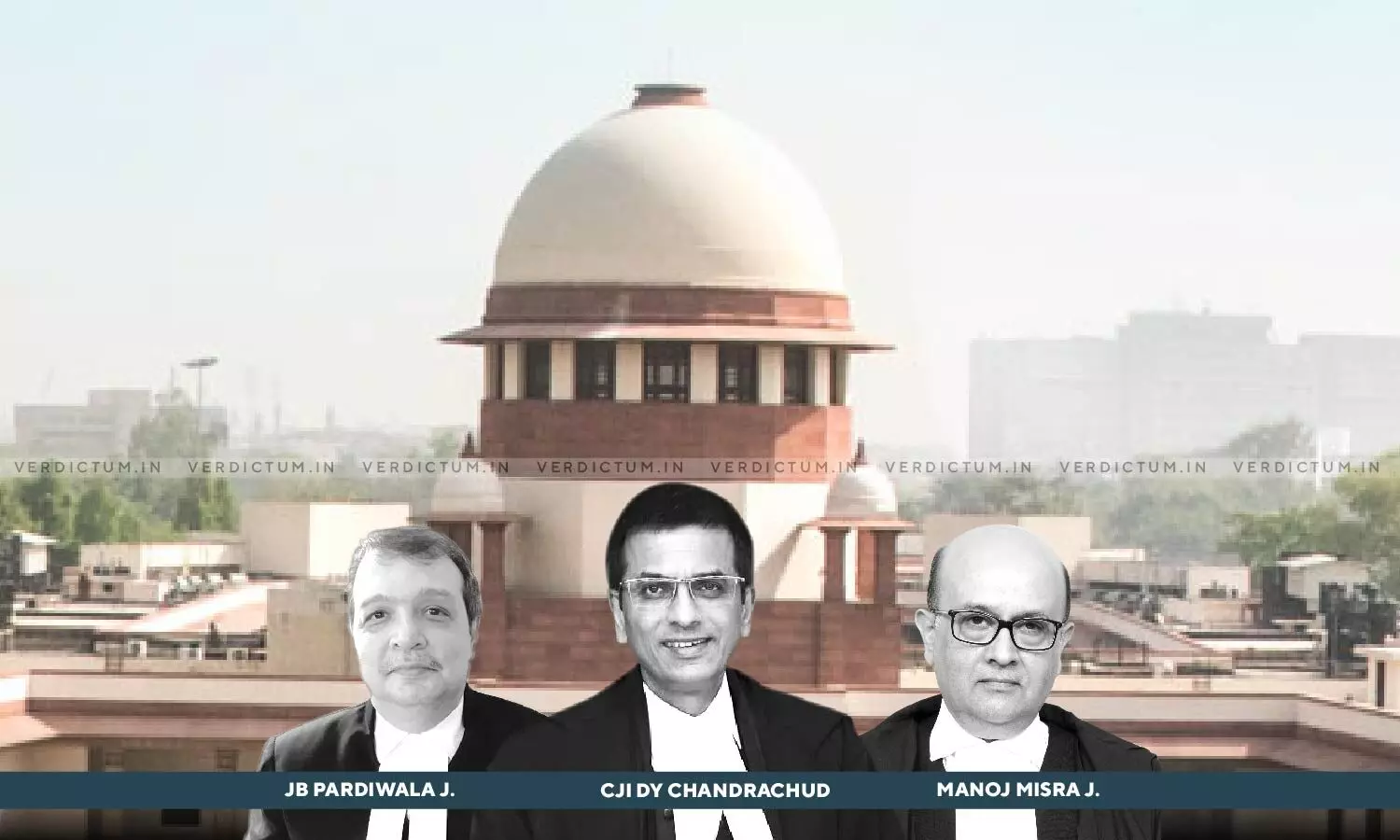
Supreme Court Refuses To Entertain Plea Alleging Non-Functioning Of Child Welfare Committees In Bihar; Directs To Approach HC
 |
|The Supreme Court has refused to entertain a Special Leave Petition alleging that the Child Welfare Committees in the 38 Districts of Bihar are not functioning till date. The bench noted that that the issue should rather be appropriately agitated before the High Court.
The petitioner in the plea was not a party to the proceedings before the Patna High Court, therefore before the Apex Court, he contended that because of the pendency before the High Court, it was unlikely that the petition would be taken up expeditiously.
A bench of Chief Justice of India D.Y. Chandrachud, Justice J.B. Pardiwala and Justice Manoj Misra thus observed, “…The grievance of the petitioner is that none of the Child Welfare Committees in the thirty-eight districts of the State of Bihar are functional as of date. This grievance can appropriately be agitated before the High Court under Article 226 of the Constitution”.
“…Since we are granting liberty to the petitioner to move the High Court for appropriate reliefs, we also grant liberty to the petitioner to move the Chief Justice of the High Court for early listing of the petition should it become necessary”, the bench further noted.
Advocate Rakesh Kumar appeared for the petitioner.
The writ petition resulting in the impugned judgment had sought directions to the respondents to constitute Child Welfare Committees in the Districts of Patna, Jehanabad, Gaya, Nalanda, Bhojpur, Begusarai, Siwan, Aurangabad, Bhagalpur, Madhubani, Saharsa, Gopalganj, Purnia and Araria as per the provisions of the Juvenile Justice (Care and Protection of Children) Act, 2015 and the Bihar Juvenile Justice (Care and Protection of Children) Rules, 2017 brought out by the State of Bihar.
In the writ petition, it was pointed out that the State has been appointing Government officials as ex-officio members of the Districts while Rule 16 (7) of the Rules specify that the Committee shall sit on all working days for a minimum of six hours, similar to the sitting hours of a Magistrate, unless the case pendency is less. Therefore, on that basis, it was argued that when Government Officials are appointed as ex-officio members, then there would be frustration of the objective of the legislation and would thus also lead to unnecessary prejudice to the children, who otherwise require a helping hand.
However, in the counter affidavit filed by the State, inter alia it was pointed out that pending selection and appointment of Members in the Child Welfare Committees (CWCs), in the best interest of the children, a Standing Panel of three persons were constituted under Section 36(6) of the Act. The Standing Panel is authorized to work only in those districts where quorum of three members do not exist and as soon as new members join, the panel would terminate automatically.
On that the High Court had noted, “We are convinced that the State is taking appropriate steps to make appointments. True, Rule 16(7) prescribes that the Committees should sit on all working days, similar to the working hours of Magistrate Court, however, after looking at the pendency of cases. The petitioner has filed the above writ petition without any research being done as to the cases pending in various districts. The objection also was on account of the appointment of Government Officials to the CWCs; which has been stated to be a stop gap arrangement by the State”.
Accordingly, the Apex Court disposed of the matter.
Cause Title: Harekrishna Singh v. The State of Bihar & Ors.
Click here to read/download the Order